2-Day: Certified Addictions-Informed Mental Health Professional-A Trauma-Focused Certification Course – Eric Gentry
$45.00
2-Day: Certified Addictions-Informed Mental Health Professional-A Trauma-Focused Certification Course – Eric Gentry Download. For clinicians working with c…
Salepage link: At HERE. Archive:
For clinicians working with clients who also abuse substances or suffer from process addictions, treatment can be really hard. If you are like many clinicians, you don’t feel able or willing to work with addictions.
Yet it doesn’t need to be. And it shouldn’t keep you from engaging the client in their overall healing.
Studies now show the connection and interplay of addiction and trauma – plus anxiety, mood disorders, and insomnia.
You can evoke change in all your clients to promote healthier coping and self-soothing skills besides substance use or process addictions.
But first, you need to master the current evidence-based practices from the worlds of both Addictions treatment and Trauma/PTSD interventions.
This Certified Addictions-Informed Mental Health Professional Training Course 2-day recording will transform your older practices when treating clients who use/abuse…clearing the path to true healing. Taught by an international trainer, clinician, AND recovery specialist Eric Gentry, PhD., you’ll receive all the following skills:
- Skills for assessing and diagnosing trauma/posttraumatic stress and addiction/substance abuse and dependence.
- Simplified treatment planning, monitoring, and measurement instruments.
- Skills for developing, enhancing and maintaining therapeutic relationships—the most potent factor for positive outcomes with this challenging population.
- A fresh perspective and utilization of the Polyvagal Theory (Porges) to both understand and treat both trauma and addiction simultaneously.
- Cutting-edge skills for developing and maintaining safety and stability with addicted survivors of trauma using cognitive, behavioral, somatic and relational approaches.
- Reframing “disease of addiction” as involuntary and unconscious posttraumatic patterns of self-defense where the survivor is chronically perceiving threat in contexts where there is little or no danger.
- Summarize the causes of substance use disorders & factors that reinforce drug use as related to case conceptualization.
- Explain the basic neurobiology of addictive chemicals and its treatment implications.
- Identify commonly misused drugs, including current “street names” of these substances, as related to assessment and treatment planning.
- Describe the signs and symptoms of substance intoxication and distinguish withdrawal syndromes for each drug class as related to case conceptualization.
- Perform a clinical assessment to distinguish substance use disorders from other mental health disorders and inform the clinician’s choice of treatment interventions.
- Analyze the various levels of substance use treatment, including medication-assisted therapies, to inform clinical treatment interventions.
- Describe the process of detoxification and its treatment implications.
- Utilize clinical strategies, such as motivational interviewing, to improve client engagement and foster behavioral change.
- Modify clinical interventions for use with clients in special populations, such as adolescents or pregnant women.
- Utilize clinical strategies to engage the client’s family in treatment to improve treatment outcomes.
- Demonstrate strategies used to improve the efficacy of group therapy, such as strategies for addressing disruptive members and building group cohesion.
- Describe ethical and legal issues related to substance use and substance use treatment, including circumstances when you should disclose client records.
Foundational Issues in Addictions-Informed Psychotherapy
- Substance Abuse vs. dependency vs. addiction
- Biopsychosocial issues
- Neurobiology of addiction
- Attachment issues
- Causes of traumatic responses
- Ethical & legal issues
Chemical Dependency Facts You Need to Know
- Classes of commonly abused drugs
- Street names of common drugs
- Signs & symptoms of use & withdrawal
Behavioral/Process Addictions
- Food
- Compulsive sexual behaviors
- Electronic addictions
- Gambling
- Compulsions
Trauma Addiction: Assessment of Comorbid Trauma & Addiction
- What to ask—and how to ask it
- What to look for: Pink flags & red flags
- Recognize other co-occurring disorders
- Evidence-based assessment scales
Levels of Care & Treatment Selection
- Detoxification
- Levels of treatment
- Medication-assisted treatment
- 12-step groups & alternatives
- Harm reduction strategies & when to use them
Three-Stage Behavioral Treatment Model for Co-Occurring Traumatic Stress and Addiction
Stage I: Build the Therapeutic Relationship & Boost Client Engagement
- Feedback Informed Therapy
- Motivational Interviewing
- Co-regulation between you & your client
Stage II: Skills Development & Cognitive Restructuring Interventions
- Relational Skills/Social Engagement System
- Build & identify a support network
- Access & utilize support
- Service to others as therapeutic
- Regulation/Relaxation Skills
- Progressive muscle relaxation (PMR)
- Trauma releasing exercises (TRE)
- Tapping
- Bilateral stimulation
- Neurofeedback
- Mindfulness for self-regulation
- Self-soothing for intense emotions
- Grounding Skills to Interrupt Dissociation
- Sensory grounding
- Mindful movement
- Seated yoga
- Containment Skills: Put away Intrusive Thoughts
- Envelope method
- Vault
- Relational containment
- Cognitive restructuring interventions
- Foster post-traumatic growth & build resilience
- Complementary & alternative treatments
Stage III: Integration & Desensitization
- Imaginal Exposure Therapy
- EMDR
- Narrative-Driven Exposure Treatment
- Cognitive Processing Therapy (CPT)
- PE (prolonged exposure)
- Trauma-focused CBT
- Somatic-Based Treatments
- Somatic Experiencing
- Sensorimotor Psychotherapy
- Trauma-Focused Yoga
- In-vivo Exposure
- Direct Therapeutic Exposure (DTE)
- Forward Facing Trauma Therapy (FFTT)
Interventions for Special Populations
- Children & adolescents
- LGBTQ clients
- Incarcerated clients
- Clients in court-ordered drug treatment?
Here's an overview of the prominent keywords and a list of famous authors:
Business and Sales: Explore business strategies, sales skills, entrepreneurship, and brand-building from authors like Joe Wicks, Jillian Michaels, and Tony Horton.
Sports and Fitness: Enhance athleticism, improve health and fitness with guidance from experts like Shaun T, Kayla Itsines, and Yoga with Adriene.
Personal Development: Develop communication skills, time management, creative thinking, and enhance self-awareness from authors like Gretchen Rubin, Simon Sinek, and Marie Kondo.
Technology and Coding: Learn about artificial intelligence, data analytics, programming, and blockchain technology from thought leaders like Neil deGrasse Tyson, Amy Cuddy, and Malcolm Gladwell.
Lifestyle and Wellness: Discover courses on holistic health, yoga, and healthy living from authors like Elizabeth Gilbert, Bill Nye, and Tracy Anderson.
Art and Creativity: Explore the world of art, creativity, and painting with guidance from renowned artists like Bob Ross and others.
All the courses on WSOlib are led by top authors and experts in their respective fields. Rest assured that the knowledge and skills you acquire are reliable and highly applicable.
Specification: 2-Day: Certified Addictions-Informed Mental Health Professional-A Trauma-Focused Certification Course – Eric Gentry
|
User Reviews
Only logged in customers who have purchased this product may leave a review.

$45.00

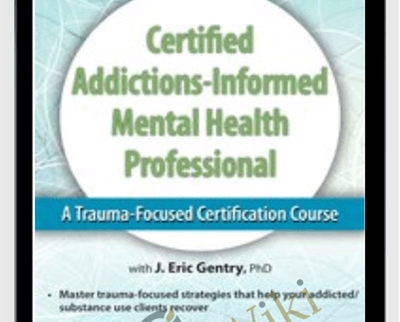

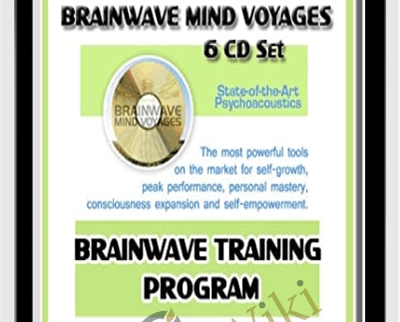
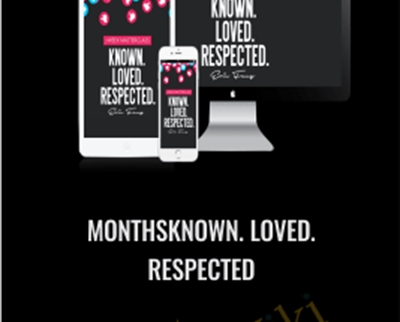

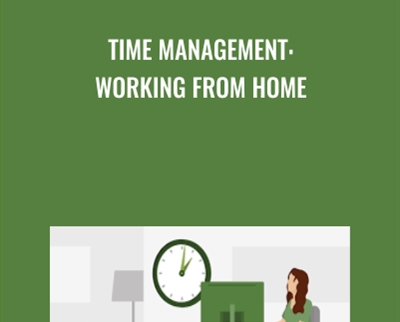
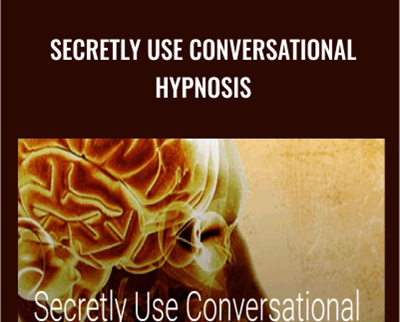



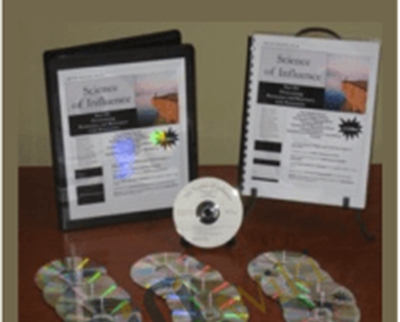
There are no reviews yet.